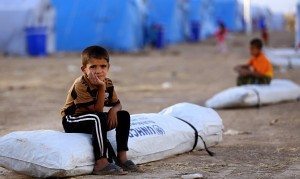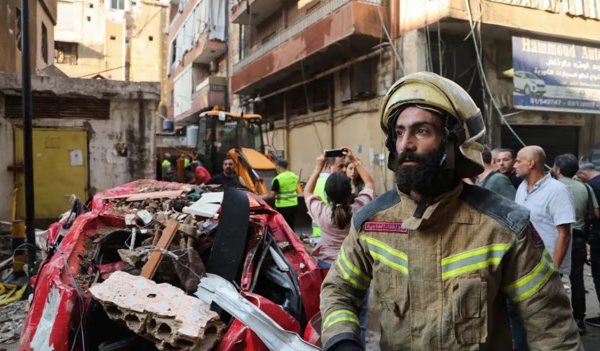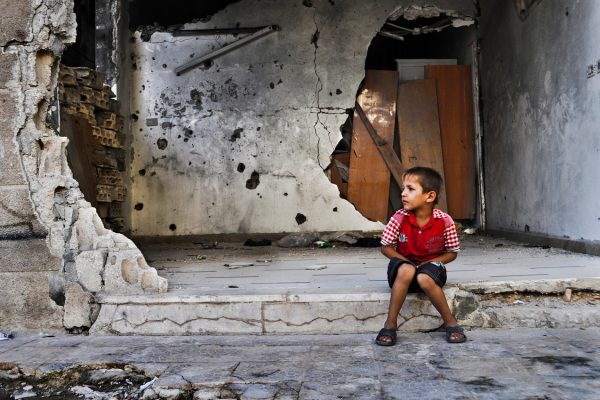Since, the terror of the so called ‘Islamic State’ also known as daesh in Iraq, currently 2.1 million people have fled their homes across Iraq and 32% of the overall Internally Displaced Peoples (IDP) remain in inadequate or critical shelter such as tents and abandoned or damaged buildings, according to the latest UNOCHA report.
The documentary shows the pain and sufferings of the internally displaced people of Iraq who live on the road between Najaf and Karbala. It is a tale of everyday struggle of families seeking shelter and of a people displaced not knowing if and when they will return to their homes.
It tells stories of the IDPs who have been affected by the horror committed against them, where you will hear from children without parents and parents who have lost their children. This is the story of the ‘Nazihoun’ the displaced refugees who have escaped from Northern Iraq away from the terrorism of the so called ‘Islamic State’
[button link=”https://www.world-federation.org/content/iraq-relief?utm_source=The%20Muslim%20Vibe&utm_medium=Post&utm_campaign=The%20Muslim%20Vibe” color=”red”]Click here to donate![/button]
About the project
According to the United Nations, Iraq is struggling with one of the largest internally displaced populations in the world where an estimated 2.1 million people are displaced at the hands of the extremist insurgent group known as ISIS (Da’esh). The UN has declared this humanitarian crisis as a ‘level three emergency’ – the highest possible emergency level.
Situation Update
- Over 2.1 million people are displaced within Iraq
- The current threat of ISIS (Daesh), Islamic State in the north means that this flow of people from the north to the south is unlikely to slow in the near future
- There are currently approximately 500,000 Internally Displaced Persons (IDPs) in Southern Iraq
- IDPs in the south of Iraq are largely clustered in Mawakib on the road from Najaf to Karbala, and on the road from Najaf to various southern cities
- Many IDPs in this region are currently without adequate housing, sheltering in unfinished buildings and inadequate tents.
- This also poses serious concerns surrounding communicable diseases, as a result of the limited access to clean water and sanitation
The World Federation of KSIMC have pro-actively responded to the collective social responsibility that defines us in our motto of “We exist to serve” and so demanding the duty of initiating an Iraq Relief strategy, which has been a humanitarian response leading to a long term developmental program for the continued fragmentation of human conditions of the Internally Displaced People. The World Federation of KSIMC hopes to join with the Iraqi Government and other states and NGO partners to create an Iraqi Relief Coalition, to coordinate emergency relief and long-term development programs. The goal of this Coalition, and of the World Federation of KSIMC, is to provide for the short, medium and long terms needs of those in the region.
 Our project will be based South of Iraq, and will roll out in stages to provide housing, nutrition, health, education and development programs to those within the camp. The initial stage will assist 10,000 IDPs, and expand to encompass 200,000 IDPs by the completion of the project.
Our project will be based South of Iraq, and will roll out in stages to provide housing, nutrition, health, education and development programs to those within the camp. The initial stage will assist 10,000 IDPs, and expand to encompass 200,000 IDPs by the completion of the project.
This project will be undertaken towards a more holistic approach rather than simple provision of food and shelter. We wish to implement programs within the camp to provide for the human dignity of those in the camps and provide a quality of life in the long term. Care for the mental health, physical health, education and employment prospects of a people is vital to ensure that they are in a strong position to contribute to society and their communities once the conflict has subsided. In this regard, special attention must be given to the needs of children, and the impact conflict and displacement can have on the youngest generation. This includes response and development of the following:
- Shelter
- Water, Sanitation and Hygiene
- Food Security
- Healthcare
- Education
- Job Creation
- Repatriations Program
To find out more, please visit the Facebook page or email murtazao@world-federation.org





